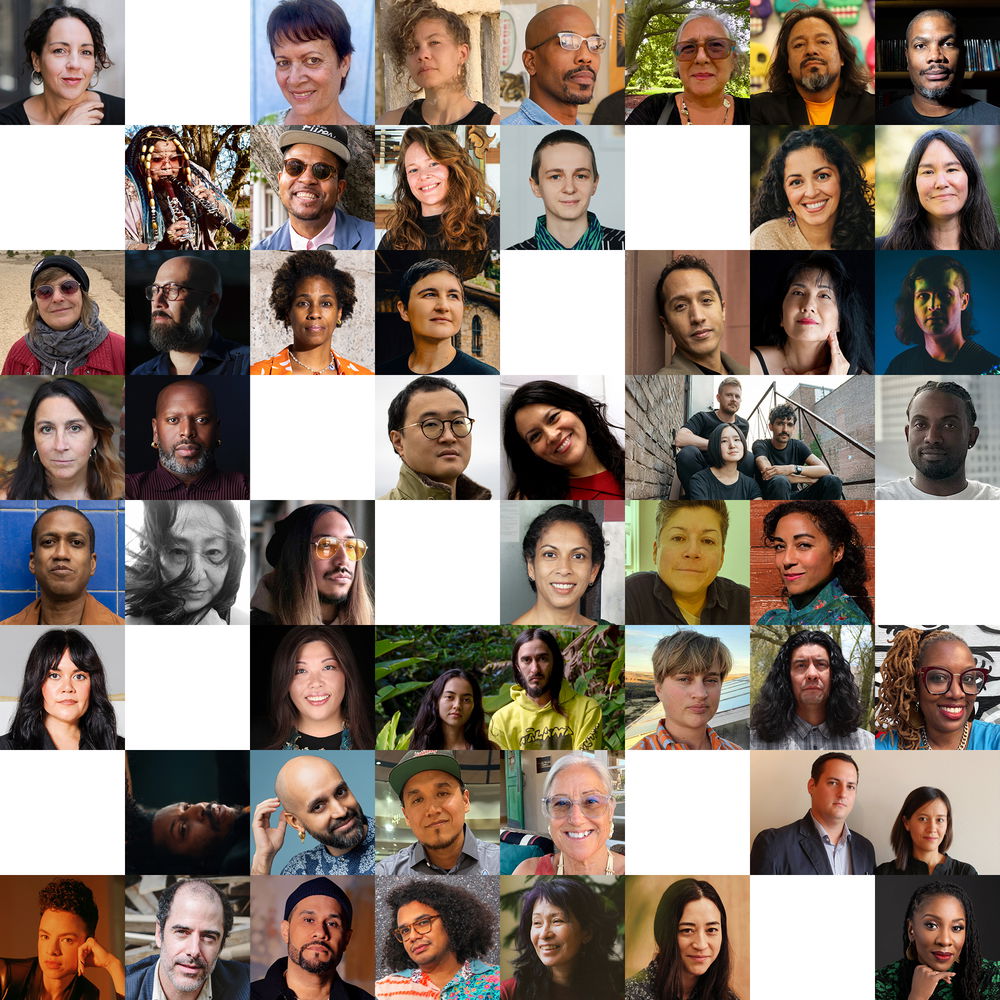Home Featured Gallery
Ghostly Labor by Vanessa Sanchez and La Mezcla, 2023. Dance, live music, video, and narration, 90 minutes. Presented by Brava! for Women in the Arts at Brava Theater Center.
Photo by Dominique Washington.
2025 Wagner Arts Fellows Wen-ti Tsen, Daniela Rivera, and L'Merchie Frazier.
Photos by Mel Taing.
Recruitment Station by New Red Order, Gaile Pranckunaite, Inpatient Press, and Emmett de Muzio; 2020–21. Nylon banners, polyester tablecloth, foam board, video monitors, cut white vinyl over red translucent window covering, dimensions variable.
Photo by Yann Chashanovski. Courtesy of EFA Project Space and New Red Order.
United States Artists believes in artists and their essential role in society.
About UsThe Latest
Artists Making Now
Leah Wulfman
- Salt Lake City, Utah -
2025 USA Fellow
Opens in new tab
kekahi wahi
- Honolulu, Hawaii -
2025 USA Fellow
Opens in new tab
Anna Martine Whitehead
- Chicago, Illinois -
2025 USA Fellow
Opens in new tab
Leilehua Lanzilotti
- Honolulu, Hawaii -
2025 USA Fellow
Opens in new tab
dots
- Brooklyn, New York -
2025 USA Fellow
Opens in new tab











